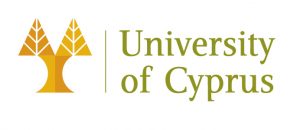05 Aug 2020 - 19 Sep 2020
Registration - Accommodation
EASY CONFERENCES
Website: www.easyconferences.eu
Email:info@easyconferences.eu
RCIS 2020 Program
All times depicted below are in the Central European Summer Time (CEST / GMT +2)
Tuesday 22/9 |
Wednesday 23/9 |
Thursday 24/9 |
Friday 25/9 |
|||||
| 10:45-11:00 | Conference Opening Room: Limassol |
Research Track Opening Room: Limassol |
||||||
| 11:00-12:30 | Tutorial 1: Data-Driven RE |
Research Projects @RCIS 20 Room: Paphos |
Session 1: Privacy and Security Room: Limassol |
Session 2: Development and Testing Room: Paphos |
Posters & Demos Rooms: Limassol (opening), Paphos, Larnaca |
Session 7: Processes and Organizations Room: Limassol |
Session 8: Human factors Room: Paphos |
|
| 12:30-13:00 | Break | |||||||
| 13:00-14:30 | Tutorial 2: The Map Process Modelling Approach Room: Limassol |
Doctoral Consortium Room: Larnaca |
Keynote 1: The Future of Work Automation (Hajo Reijers) Room: Limassol |
Keynote 2: Explainable AI is not yet understandable AI (Nava Tintarev) Room: Limassol |
Panel: AI for the information systems of the future Room: Larnaca |
|||
| 14:30-15:00 | Break | |||||||
| 15:00-16:30 | Tutorial 3: Automated Machine Learning Room: Limassol |
Doctoral Consortium Room: Larnaca |
Session 3: Ontologies and Methods Room: Limassol |
Session 4: Machine Learning Room: Paphos |
Session 5: Networks and Communities Room: Limassol |
Session 6: Data and Business Analytics Room: Paphos |
Session 9: Enterprise and Analytics Architectures Room: Limassol |
Session 10: IS in Society Room: Paphos |
| 16:30-17:00 | Welcome, online drinks Room: Larnaca |
Awards Room: Larnaca |
Conference closing and RCIS 2021 announcement Room: Limassol |
|||||
Tuesday, 22/09/2020
| 10:45-11:00 | Conference Opening Room: Limassol George Angelos Papadopoulos, University of Cyprus, Cyprus Pericles Loucopoulos, Institute of Digital Innovation & Research (IDIR), Ireland |
|
| 11:00-12:30 | Tutorial 1: Data-Driven RE |
Research Projects @RCIS Chairs: Elena Kornyshova and Marcela Ruiz Room: Paphos Managing Cyber-physical Incidents Propagation in Health Services - SAFECARE Faten Atigui, Fayçal Hamdi, Nadira Lammari, Fatma-Zohra Hannou, Nada Mimouni and Samira Si-Said Cherfi New Scientific Journal Articles Everyday: Visualize or Perish!- IViSSEM Ana Alice Baptista, Pedro Branco, Bruno Miguel Azevedo, Ana Carolina Ribeiro, Mariana Curado Malta and Jorge Oliveira E Sá A Model Driven Engineering Approach to Key Performance Indicators: Towards Self-Service Performance Management - SS-PM Corentin Burnay Next Level of Test Automation - TESTOMAT Sigrid Eldh, Tanja E. J. Vos, Serge Demeyer, Pekka Aho and Machiel van der Bijl A cyberSecurity Platform for vIrtualiseD 5G cybEr Range services - SPIDER Neofytos Gerosavvas, Manos Athanatos, Christoforos Ntantogian, Christos Xenakis, Cristina Costa, Alberto Mozo, Matthias Ghering and Angela Brignone DEveloper COmpanion for Documented and annotatEd code Reference - DECODER Miriam Gil, Fernando Pastor Ricos, Victoria Torres and Tanja E. J. Vos Eco/logical Learning and Simulation Environments in Higher Education - ELSE Christos Mettouris, Evangelia Vanezi, Alexandros Yeratziotis, Alba Graziano and George A. Papadopoulos Intelligent Verification/Validation for Extended Reality Based System - iv4XR Wishnu Prasetya, Rui Prada, Tanja E. J. Vos, Fitsum Kifetew, Frank Dignum, Jason Lander, Jean-Yves Donnart, Alexandre Kazmierowski, Joseph Davidson and Fernando Pastor Ricos |
| 12:30-13:00 | Break | |
| 13:00-14:30 | Tutorial 2: The Map Process Modelling Approach Chairs: Ignacio Panach and Estefania Serral Room: Limassol Expressing Strategic Variability and Flexibility of Processes: The Map Process Modelling Approach Rebecca Deneckere, University of Paris 1 Panthéon-Sorbonne, France Jolita Ralyté, University of Geneve, Switzerland |
Doctoral Consortium 13:40-14:20 14:20-15:00 |
| 14:30-15:00 | Break | Break 15:00-15:20 |
| 15:00-16:30 | Tutorial 3: Automated Machine Learning Chairs: Ignacio Panach and Estefania Serral Room: Limassol Automated Machine Learning: State-of-The-Art and Open Challenges Radwa Elshawi, University of Tartu, Estonia |
Doctoral Consortium (cont'd) 15:20-16:00 16:00-16:40 |
Wednesday, 23/09/2020
| 10:45-11:00 | Research Track Opening Room: Limassol Jelena Zdravkovic, Stockholm University, Sweden Fabiano Dalpiaz, Utrecht University, Netherlands |
|
| 11:00-12:30 | Session 1: Privacy and Security Session Chair: Mohamad Gharib, University of Florence, Italy Room: Limassol TLKC-Privacy Model for Process Mining Majid Rafiei, Miriam Wagner, Wil M. P. van der Aalst Ontology Evolution in the Context of Model-Based Secure Software Engineering Jens Bürger, Timo Kehrer, Jan Jürjens Privacy Preserving Real-Time Video Stream Change Detection Based on the Orthogonal Tensor Decomposition Models Bogusław Cyganek |
Session 2: Development and Testing Session Chair: Massimo Mecella, Sapienza Università di Roma, Italy Room: Paphos Scriptless Testing at the GUI Level in an Industrial Setting Hatim Chahim, Mehmet Duran, Tanja E. J. Vos, Pekka Aho, Nelly Condori Fernandez Improving Performance and Scalability of Model-Driven Generated Web Applications Gioele Moretti, Marcela Ruiz, Jürgen Spielberger TesCaV: An Approach for Learning Model-Based Testing and Coverage in Practice Beatriz Marín, Sofía Alarcón, Giovanni Giachetti, Monique Snoeck |
| 12:30-13:00 | Break | |
| 13:00-14:30 | Keynote 1: The Future of Work Automation Chair: Jelena Zdravkovic Room: Limassol Hajo Reijers , Utrecht University, The Netherlands Due to the advent of information technology, our perception of what "work" is evolves. Tasks that were until recently considered to be the exclusive domain of humans are now carried out by robots or algorithms. Is it a matter of time before humans have become obsolete in the working place? Information technology, however, is not only a means to automate work, it can also be used to better understand work itself. In this talk, Hajo will focus on what we can learn from data on the way in which people work, what their work practices are, and how effectively people are applying these patterns. These insights can help to reason on whether it makes sense to automate parts of human work, or whether other approaches to enhance the quality and effectiveness of work are more attractive. For the purpose of illustration, Hajo will draw from projects that study the nature of work, in which he collaborates with experts from a variety of domains. |
|
| 14:30-15:00 | Break | |
| 15:00-16:30 | Session 3: Ontologies and Methods Session Chair: Mattia Salnitri, Politecnico di Milano, Italy Room: Limassol COPri - A Core Ontology for Privacy Requirements Engineering Mohamad Gharib, John Mylopoulos, Paolo Giorgini An Ontology of IS Design Science Research Artefacts Hans Weigand, Paul Johannesson, Birger Andersson Systems-Thinking Heuristics for the Reconciliation of Methodologies for Design and Analysis for Information Systems Engineering Blagovesta Kostova, Irina Rychkova, Andrey Naumenko, Gil Regev, Alain Wegmann |
Session 4: Machine Learning Session Chair: Truong Ho-Quang, Chalmers University of Technology, Sweden Room: Paphos Automatic Classification Rules for Anomaly Detection in Time-Series Ines Ben Kraiem, Faiza Ghozzi, Andre Peninou, Geoffrey Roman-Jimenez, Olivier Teste Anomaly Detection on Data Streams – A LSTM’s Diary Christoph Augenstein, Bogdan Franczyk |
| 16:30-17:00 | Welcome, online drinks Room: Larnaca |
|
Thursday, 24/09/2020
| 11:00-12:30 | Posters & Demos Information Systems Modelling: Limassol
Information systems and security aspects: Paphos
Information Systems and Requirements Engineering: Larnaca
|
|
| 12:30-13:00 | Break | |
| 13:00-14:30 | Keynote 2: Explainable AI is not yet understandable AI Chair: Fabiano Dalpiaz Room: Limassol Nava Tintarev, Delft University of Technology Decision-making at individual, business, and societal levels is influenced by online content. Filtering and ranking algorithms such as those used in recommender systems are used to support these decisions. However, it is often not clear to a user whether the advice given is suitable to be followed, e.g., whether it is correct, whether the right information was taken into account, or if the user’s best interests were taken into consideration. In other words, there is a large mismatch between the representation of the advice by the system versus the representation assumed by its users. This talk addresses why we (might) want to develop advice-giving systems that can explain themselves, and how we can assess whether we are successful in this endeavor. This talk will also describe some of the state-of-the-art in explanations in a number of domains (music, tweets, and news articles) that help link the mental models of systems and people. However, it is not enough to generate rich and complex explanations; more is required in order to understand and be understood. This entails among other factors decisions around which information to select to show to people, and how to present that information, often depending on the target users and contextual factors |
|
| 14:30-15:00 | Break | |
| 15:00-16:30 | Session 5: Networks and Communities Session Chair: Giovanni Meroni, Politecnico di MIlano, Italy Room: Limassol Online Peer Support Groups for Behavior Change: Moderation Requirements Manal Aldhayan, Mohammad Naiseh, John McAlaney, Raian Ali Participation in Hackathons: A Multi-methods View on Motivators, Demotivators and Citizen Participation Anthony Simonofski, Victor Amaral de Sousa, Antoine Clarinval, Benoît Vanderose How to Measure Influence in Social Networks? Ana Carolina Ribeiro, Bruno Azevedo, Jorge Oliveira e Sá, Ana Alice Baptista |
Session 6: Data and Business Analytics Session Chair: Evangelia Kavakli, University of the Aegean, Greece Room: Paphos Developing a Real-Time Traffic Reporting and Forecasting Back-End System Theodoros Toliopoulos, Nikodimos Nikolaidis, Anna-Valentini Michailidou, Andreas Seitaridis, Anastasios Gounaris, Nick Bassiliades, Apostolos Georgiadis, Fotis Liotopoulos Predicting Unemployment with Machine Learning Based on Registry Data Markus Viljanen, Tapio Pahikkala A Big Data Conceptual Model to Improve Quality of Business Analytics Grace Park, Lawrence Chung, Haan Johng, Vijayan Sugumaran, Sooyong Park, Liping Zhao, Sam Supakkul |
| 16:30-17:00 | Awards Room: Larnaca Distinguished Papers Fabiano Dalpiaz and Jelena Zdravkovic Best Posters & Demos Marcela Ruiz and Elena Kornyshova |
|
Friday, 25/09/2020
| 11:00-12:30 | Session 7: Processes and Organizations Session Chair: Estefanía Serral, KU Leuven, Belgium Room: Limassol Discovering Business Process Simulation Models in the Presence of Multitasking Bedilia Estrada-Torres, Manuel Camargo, Marlon Dumas, Maksym Yerokhin Incremental Discovery of Hierarchical Process Models Daniel Schuster, Sebastiaan J. van Zelst, Wil M. P. van der Aalst Toward Becoming a Data-Driven Organization: Challenges and Benefits Richard Berntsson Svensson, Maryam Taghavianfar |
Session 8: Human Factors Session Chair: Marcela Ruiz, Zurich University of Applied Sciences, Switzerland Room: Paphos FINESSE: Fair Incentives for Enterprise Employees Soumi Chattopadhyay, Rahul Ghosh, Ansuman Banerjee, Avantika Gupta, Arpit Jain User-Experience in Business Intelligence - A Quality Construct and Model to Design Supportive BI Dashboards Corentin Burnay, Sarah Bouraga, Stéphane Faulkner, Ivan Jureta Explainable Recommendations in Intelligent Systems: Delivery Methods, Modalities and Risks Mohammad Naiseh, Nan Jiang, Jianbing Ma, Raian Ali |
| 12:30-13:00 | Break | |
| 13:00-14:30 | Panel: AI for the information systems of the future Room: Larnaca Moderator: Jolita Ralyte, University of Geneva Panelists: Marko Bajec (University of Ljubljana, Slovenia) |
|
| 14:30-15:00 | Break | |
| 15:00-16:30 | Session 9: Enterprise and Analytics Architectures Session Chair: Dominik Bork, Vienna University of Technology, Austria Room: Limassol Structural Coupling, Strategy and Fractal Enterprise Modeling Ilia Bider IoT Analytics Architectures: Challenges, Solution Proposals and Future Research Directions Theo Zschörnig, Robert Wehlitz, Bogdan Franczyk Evolution of Enterprise Architecture for Intelligent Digital Systems Alfred Zimmermann, Rainer Schmidt, Dierk Jugel, Michael Möhring |
Session 10: Information Systems in Society Text Embeddings for Retrieval from a Large Knowledge Base |
| 16:30-17:00 | Conference closing and RCIS 2021 Room: Limassol |
|



